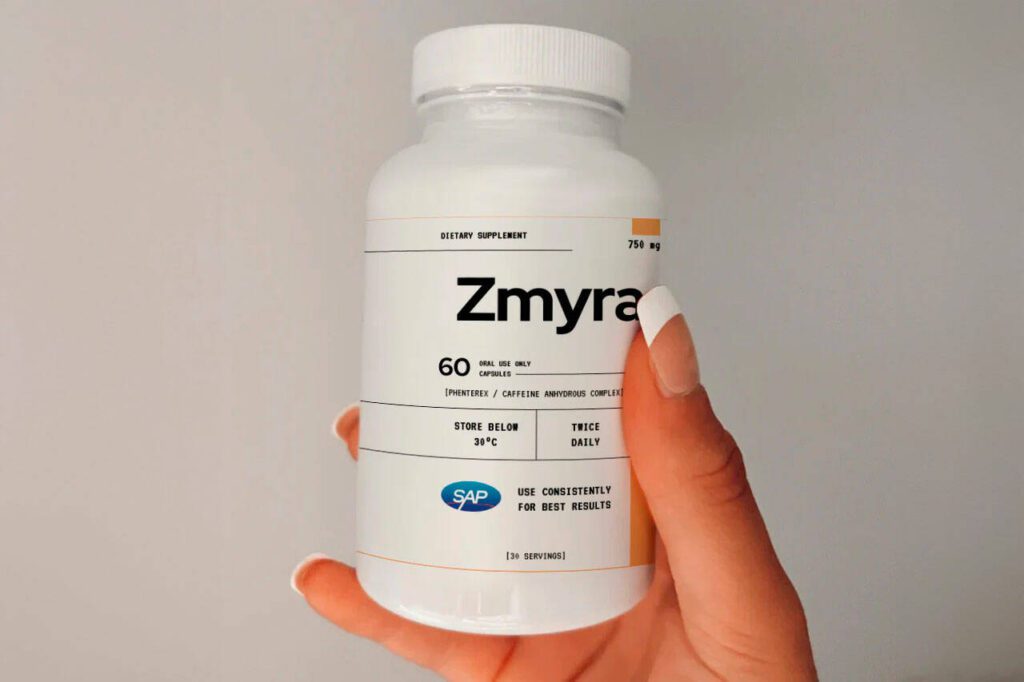As the quest for sustainable weight loss continues, many individuals seek medical support to enhance their journey towards improved health. Ozempic, a medication initially approved for the treatment of type 2 diabetes, has gained attention for its off-label use in weight management. Studies have noted that the active ingredient, semaglutide, may aid in weight loss. However, the growing popularity of Ozempic and its corresponding supply challenges have necessitated exploring alternative weight loss methods.
While Ozempic’s effectiveness is notable, it is crucial to consider other weight loss strategies that can be viable options for individuals who do not have access to this medication or seek different avenues for shedding excess weight. Medical professionals often recommend a combination of lifestyle modifications, including dietary changes, increased physical activity, and behavior therapy.
In addition, other prescription medications and supplements can support weight loss efforts under medical supervision. Moreover, some healthcare providers might highlight the significance of addressing weight gain associated with certain medicines by suggesting clinical alternatives with a lower risk of weight gain, or that might even assist with weight reduction.
Understanding that weight loss is a deeply personal and often complex journey is essential. The suitability of alternatives to Ozempic will depend on an individual’s unique medical history, risk profile, and personal preferences. It is always advised to consult with healthcare professionals to navigate the available options and to develop a comprehensive and safe weight management plan.
Understanding Weight Loss and Ozempic
Ozempic is a prescription medication that aids in weight management and is vital for those with certain medical conditions. Its effectiveness is a result of its active ingredient, which belongs to the GLP-1 agonist class of drugs.
The Role of GLP-1 Agonists in Weight Management
Glucagon-like peptide-1 (GLP-1) agonists are a class of medications that mimic the action of the natural hormone GLP-1. They work by:
- Enhancing the release of insulin from the pancreas, which lowers blood glucose levels.
- Decreasing glucagon secretion after meals also helps lower blood sugar levels.
- Slowing gastric emptying helps people feel full longer after eating, reducing caloric intake.
- Reducing appetite leads to a decrease in food consumption.
These combined effects contribute to weight loss, as they help control caloric intake and improve metabolism.
Benefits and Limitations of Ozempic for Weight Loss
Ozempic, with the generic name semaglutide, has several weight-loss-related benefits:
- Improved glycemic control in patients with type 2 diabetes.
- Reduction in body weight due to decreased appetite and caloric intake.
- Positive effects on systolic blood pressure, cholesterol levels, and cardiovascular risk factors.
However, Ozempic also comes with limitations:
- Not approved for all individuals looking to lose weight, it is mainly intended for those with type 2 diabetes.
- Potential side effects can include nausea, vomiting, diarrhea, abdominal pain, and constipation.
- There is a need for medical supervision to manage dosing and monitor for adverse effects.
- Cost, as it can be expensive without insurance coverage.
Achieve Weight Loss Naturally with Zmyra
As the wellness community seeks effective and safer weight management solutions, Zmyra is gaining momentum as an excellent herbal alternative to traditional prescription medications like Ozempic. This review delves into the unique blend of Zmyra’s all-natural ingredients, analyzes its strengths and limitations, and explains its appeal to those concerned with the health risks of synthetic medications.
Comprehensive Breakdown of Zmyra’s Natural Composition
Zmyra’s thoughtfully curated formula combines well-researched, natural compounds known for their efficacy in promoting weight loss and enhancing metabolic health:
- Chromium Picolinate: Critical for improving insulin sensitivity, this mineral helps stabilize blood sugar and reduce food cravings.
- Cayenne Pepper Extract: Known for its thermogenic properties, it helps to ramp up metabolism and increase fat burning.
- Glucomannan: A soluble fiber that absorbs water and expands in the stomach, it naturally reduces caloric intake by promoting a feeling of fullness.
- Green Tea Extract: This extract is a powerhouse of antioxidants that boost metabolic rate and encourage fat oxidation.
- Caffeine Anhydrous: Energizes and enhances metabolic rate through increased thermogenesis, aiding in more effective fat burn.
These ingredients are carefully selected to offer a natural, holistic approach to weight loss, similar to the effects of GLP-1 agonists like Ozempic, but from herbal sources.
Analyzing Zmyra: Advantages and Considerations
Advantages:
- Purely Herbal Ingredients: Comprising only natural components, Zmyra minimizes the risk of the harsh side effects often seen with synthetic drugs.
- Over-the-Counter Availability: Zmyra can be purchased without a prescription, offering a straightforward and private approach to weight management.
- Supports Overall Health: Zmyra contributes to improved metabolic functions and sustained vitality beyond assisting in weight loss.
Considerations:
- Diverse Responses: As with any supplement, the effectiveness of Zmyra can vary based on individual biological factors and lifestyle choices.
- Commitment to Routine: Zmyra should be taken consistently as part of a disciplined health regimen for best results.
- Sensitivity to Stimulants: Those with sensitivities should note the caffeine content, which might not suit all users.
Zmyra vs. Ozempic: Health Implications and User Safety
While Ozempic is typically prescribed for type 2 diabetes and carries known risks such as potential thyroid tumors and gastrointestinal distress, Zmyra’s natural formulation significantly reduces such health concerns, offering a safer and gentler option for those wary of chemical-based treatments.
Concluding Thoughts on Zmyra as a Natural Weight Management Solution
Zmyra emerges as a formidable herbal substitute for Ozempic, ideal for those preferring a natural route to achieve and maintain healthy weight loss. It provides a comprehensive, holistic solution to weight management by blending appetite suppression, metabolic enhancement, and energy boosting—all through natural ingredients.
Opting for Zmyra means choosing a path free from the severe side effects and risks associated with many prescription medications. If you’re committed to pursuing a healthier, more natural approach to weight management, Zmyra offers an alternative and a fundamentally sound choice for long-term wellness.
Click here to visit the official website for Zmyra >>>
Dietary Changes for Weight Loss
Dietary modifications are pivotal in any weight management plan. Two practical dietary approaches to consider are reducing carbohydrate intake and creating a calorie deficit.
Low-Carbohydrate Diets
Low-carbohydrate diets limit carb intake to encourage the body to burn fat for energy. This approach has multiple variations, ranging from the strict ketogenic diet to more moderate versions like the low-glycemic index diet. The common thread among them is reducing high-carbohydrate foods such as bread, pasta, and sugary snacks while increasing the consumption of proteins, fats, and non-starchy vegetables. This can result in decreased appetite and increased weight loss.
Foods to include in a low-carbohydrate diet:
- Proteins: Chicken, Fish, Eggs
- Fats: Avocado, Olive oil, Nuts
- Vegetables: Broccoli, Spinach, Cauliflower
Calorie Deficit Strategies
Implementing calorie deficit strategies involves consuming fewer calories than the body expends. Individuals need to calculate their Basal Metabolic Rate (BMR) and factor in their level of physical activity to determine a tailored daily calorie intake that promotes weight loss. Choosing foods that are rich in nutrients and lower in calories instead of foods that are high in calories and low in nutrients helps you feel full and promotes good health.
How to achieve a calorie deficit:
- Calculate BMR: Use an online BMR calculator.
- Track Intake: Log food using calorie-tracking apps.
- Mindful Eating: Choose whole grains, lean proteins, and vegetables.
- Portion Control: Understand serving sizes to prevent overeating.
Physical Activity as an Alternative
Incorporating physical activity into one’s lifestyle can be a pivotal strategy for weight loss. Regular exercise can provide benefits that drugs like Ozempic offer without medical intervention. It can also improve metabolic health and contribute to sustainable weight management.
Aerobic Exercises
Aerobic exercises, also known as cardio workouts, increase heart rate and promote oxygen circulation through the blood. They are foundational in burning calories and improving cardiovascular health. Examples of practical aerobic activities include:
- Walking: A brisk daily walk can significantly contribute to caloric expenditure.
- Cycling: Both stationary and outdoor cycling are excellent for engaging major muscle groups in the legs.
- Swimming: This low-impact exercise suits all ages and fitness levels, providing a full-body workout.
- Running: For those who can, running is an intense cardio exercise that burns many calories.
Consistent aerobic workouts can rival weight loss medications by facilitating fat loss and enhancing physical fitness.
Strength Training
Strength training, also called resistance training, is crucial in building muscle mass and improving metabolic rate. Maintaining or increasing lean muscle mass means the body burns more calories at rest. Typical strength training methods include:
- Free weights: Utilizing dumbbells and barbells for exercises like squats, deadlifts, and bench presses.
- Resistance bands: This allows for various exercises that can be adjusted for tension and difficulty.
- Bodyweight exercises: Push-ups, pull-ups, and planks are accessible forms of strength training that do not require equipment.
- Machines: Gym weight machines target specific muscle groups and provide a controlled exercise environment.
Consistent strength training and proper nutrition are crucial for weight loss, as they increase resting metabolic rate and promote fat-free body mass.
Other Prescription Medications
Prescription medications are available for individuals who require pharmacological intervention to manage their weight. These medications function through various mechanisms to assist in weight control.
Metformin for Weight Management
Metformin is traditionally used to treat type 2 diabetes by improving insulin sensitivity and lowering glucose production. However, physicians may prescribe it off-label for weight management. Clinical studies have shown that metformin may lead to modest weight loss in overweight or obese individuals.
- Mechanism of Action: Improves insulin sensitivity and decreases liver glucose production.
- Typical Dosage: Ranges from 500mg to 2000mg per day.
- Potential Side Effects: Gastrointestinal issues, such as nausea and diarrhea
Liraglutide as a Weight Loss Option
Liraglutide is an injectable medication approved for weight management in adults with a body mass index (BMI) of 30 or greater or 27 or greater with at least one weight-related condition. It is a glucagon-like peptide-1 (GLP-1) receptor agonist that promotes satiety and reduces appetite.
- Mechanism of Action: Mimics GLP-1, enhancing satiety, slowing gastric emptying
- Typical Dosage: Starts at 0.6mg daily, up to 3mg as tolerated.
- Potential Side Effects: Nausea, hypoglycemia, pancreatitis.
Over-the-Counter Supplements
While prescription medications like Ozempic are often used for weight management, individuals seeking non-prescription options can consider various over-the-counter (OTC) supplements. These products may support weight loss efforts through different mechanisms of action.
Fiber Supplements
Fiber supplements are widely recognized for their role in weight management. They function by promoting satiety, which can lead to reduced calorie intake. For instance, psyllium husk is a popular choice, as it is highly soluble and can aid digestive health. Glucomannan, another form of soluble fiber, has shown potential to help with weight loss. It is important to note that individuals should gradually increase their fiber intake to prevent digestive discomfort and increase their water intake to aid in the effects of fiber.
Green Tea Extract
Green Tea Extract is often touted for its weight loss benefits due to the presence of catechins, specifically epigallocatechin gallate (EGCG). Studies suggest that EGCG, in conjunction with caffeine, may help to increase fat oxidation and caloric expenditure modestly. It is suggested that standardized extracts be looked for to ensure adequate catechin content. As with any supplement, it is crucial to adhere to the recommended dosages and be aware of possible side effects, such as jitteriness or sleep disturbances, especially in caffeine-sensitive individuals.
Behavioral Interventions
Psychological techniques and eating behavior modifications can significantly influence weight loss. These methods focus on altering thought patterns and developing a greater awareness of eating habits.
Cognitive Behavioral Therapy
Cognitive Behavioral Therapy (CBT) is a structured approach that helps individuals identify and alter negative thought patterns contributing to weight gain or hindering weight loss. It entails setting realistic goals and learning strategies to cope with food cravings and emotional eating.
- Goal setting: Patients are encouraged to set specific, measurable, achievable, relevant, and time-bound (SMART) goals.
- Self-monitoring: Individuals track their eating habits and physical activity.
- Stress management: Techniques like deep breathing exercises and progressive muscle relaxation are taught to manage emotional triggers for overeating.
Mindful Eating Practices
Mindful eating practices involve being fully present and engaged during the eating experience, paying close attention to the flavors, textures, and physical hunger cues.
- Awareness of hunger and fullness cues: Individuals learn to recognize when they are starving and have eaten enough.
- Appreciation of food: Emphasis is placed on appreciating meals, which can lead to more satisfaction with smaller portions.
- Distraction-free meals: Eating without distractions like television can prevent overeating by allowing one to listen to their body’s satiety signals.
Surgery as a Last Resort
Patients may consider surgical interventions when lifestyle modifications and pharmacotherapy do not yield the desired weight loss outcomes. These options typically come into play as a last resort due to their invasive nature and the necessity for thorough evaluation and preparation.
Bariatric Surgery Options
When weight loss becomes a medical necessity, and other methods have been exhausted, bariatric surgery presents several options for those looking for significant and lasting results. Roux-en-Y gastric bypass and sleeve gastrectomy are the most common bariatric procedures. These surgeries function by limiting food intake, affecting the absorption of nutrients, or both. The adjustable gastric band is a less common but notable option, which is less invasive and typically results in less weight loss.
Patients must understand that each procedure comes with varying degrees of risks and potential complications, alongside different weight loss potentials and lifestyle changes. Therefore, selecting the suitable surgery is a critical decision that should be made by a healthcare provider specializing in bariatric medicine.
Preoperative Considerations
Before undergoing bariatric surgery, several preoperative considerations are crucial for patient safety and the success of the surgery. Candidates must undergo a comprehensive evaluation process including, but not limited to, a psychological assessment, diet and exercise history, and complete medical examination to assess comorbid conditions.
It is also essential for patients to have realistic expectations about the surgery’s outcome. The preparation phase often includes meetings with a dietitian, where patients are educated on the dietary changes that will be necessary post-operation. They must demonstrate an ability to follow strict nutritional guidelines before the surgery is approved to ensure their commitment to maintaining long-term results.
Endocrinologist-Recommended Lifestyle Changes
Endocrinologists stress the importance of sustained health management and tailored nutritional and physical activity strategies for weight loss.
Regular Health Monitoring
Regular health monitoring is vital for individuals aiming to lose weight, especially if taking medications like Ozempic. An endocrinologist may recommend routine check-ups to track progress and ensure the patient’s metabolic parameters remain within healthy ranges. Health monitoring might include:
- Blood Pressure Checks: High blood pressure can indicate cardiovascular stress.
- Fasting Blood Glucose Tests: To observe blood sugar levels and mitigate the risk of diabetes.
- Lipid Profiles: To assess cholesterol and triglyceride levels.
- Weight Tracking: Frequent monitoring can help adjust weight loss strategies if needed.
Personalized Diet and Exercise Plan
A personalized diet and exercise plan is integral to sustainable weight loss. Endocrinologists often collaborate with dietitians to create a diet plan that suits the patient’s unique needs, considering factors like age, sex, metabolic rate, and food preferences. It may include:
- Balanced Macronutrients: An emphasis on lean proteins, complex carbohydrates, and healthy fats.
- Caloric Intake: Recommendations based on basal metabolic rate and lifestyle.
- An exercise regimen is tailored to the individual’s fitness level and might consist of:
- Aerobic Activity: Walking, cycling, or swimming for heart health.
- Resistance Training: To preserve muscle mass and improve metabolic rate.
Support Groups and Accountability
Support groups can be critical when individuals embark on their weight loss journey by providing community and accountability. These groups create environments where people share experiences, challenges, and successes, fostering a network of encouragement and mutual support.
Online forums and patient advocacy organizations, like the Obesity Action Coalition, offer platforms for individuals to discuss their progress and setbacks in weight management efforts. Being part of such groups helps individuals to stay committed to their goals. Moreover, they can obtain constructive feedback and advice from peers undergoing or overcoming similar challenges.
In-person meetings also play a vital role. They offer direct interaction and an opportunity to form meaningful connections with others. Regular meetings and check-ins help reinforce responsibilities towards healthy choices and staying on track with weight loss goals.
For individuals considering drug therapy as part of their obesity management, such as the option mentioned in a content analysis of TikTok videos, participating in support groups can provide insights into various aspects, including practical usage and coping with possible side effects.
Engaging with a support group is not just about receiving support; it’s also about contributing to the success of others, which can significantly enhance one’s commitment to sustained weight management efforts.
Frequently Asked Questions About Ozempic and Alternatives
Many individuals seek alternatives to Ozempic in the pursuit of weight management. This section addresses common inquiries regarding comparable medications, over-the-counter options, natural supplements, and cost-effective prescriptions and compares other drugs’ efficacy and safety.
Q: What Medicines Are Similar to Ozempic for Managing Weight?
A: Medications that fall into the same class as Ozempic, known as GLP-1 receptor agonists, include Trulicity and Wegovy, also used for weight management in individuals with type 2 diabetes. These alternatives work on similar principles by mimicking an incretin hormone that helps control blood sugar and potentially leads to weight loss.
Q: Are There Any Over-the-counter Drugs Similar to Ozempic?
A: Currently, no over-the-counter medications can precisely mimic the effects of Ozempic. The mechanisms of action and the potency of Ozempic as a prescription medication mean that its alternatives are usually also prescription-based.
Q: Can Natural Supplements Be Effective as an Alternative to Ozempic for Losing Weight?
A: Although not as potent as prescription medications, certain natural supplements may support weight loss. These supplements can include ingredients that may help suppress appetite or increase metabolism. However, they are not direct substitutes for Ozempic and should be used under the guidance of a healthcare provider.
Q: Is There a Less Expensive Prescription Drug That Functions Like Ozempic?
A: For those seeking a more affordable option, metformin is a prescription drug used primarily for type 2 diabetes management that can sometimes lead to weight loss. It is generally less expensive than Ozempic, but it works differently and may not be as effective for weight loss in all individuals.
Q: How Does Wegovy Compare to Ozempic in Terms of Weight Loss Efficacy?
A: Wegovy, which uses the same active ingredient as Ozempic, has explicitly been approved for chronic weight management. Regarding weight loss efficacy, studies suggest that Wegovy, at a higher dose, may offer comparable results to Ozempic.
Q: What Are the Safety Considerations Between Phentermine and Ozempic?
A: Phentermine is another prescription medication used for weight loss. However, there are significant differences in safety profiles and mechanisms of action between it and Ozempic. Ozempic’s safety considerations revolve primarily around its effects on blood sugar and the gastrointestinal system, whereas Phentermine is a stimulant with risks related to blood pressure and heart health.
Click Here to Get Best Ozempic Alternatives At Discounted Price!!!





























